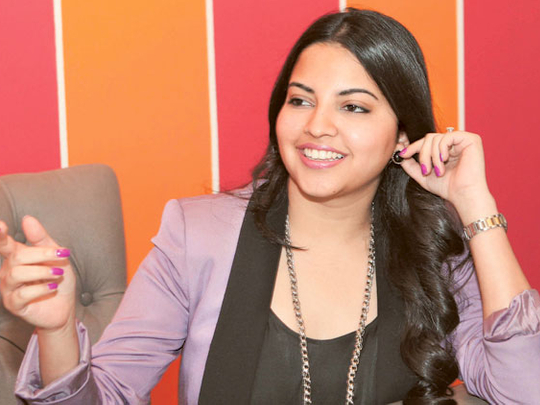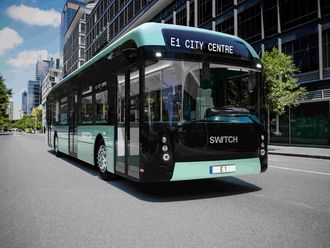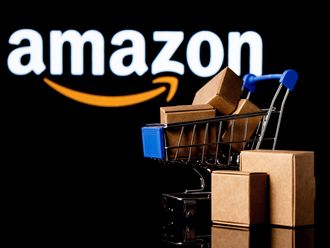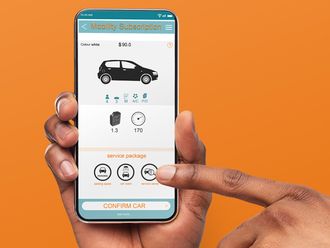
Akanksha Goel started Socialize a creative agency specialising in digital communications. The business emerged from a research paper, written jointly with her Professor, while studying in an undergraduate program in Marketing Communications in Singapore.
If I was a company requesting your services, tell me what you do and what I will pay you for?
Socialize is a boutique digital media agency and training house. We teach and help businesses harness the power of online platforms/tools to drive innovation in their marketing communications,
Typically, you would pay us to:
Create content about your brand/products and seed that via online communities to reach potential customers and drive sales.
Manage your brand’s presence on social networks and build digital ecosystems that will help you have a dialogue with your consumers and create brand preference.
Develop games, website & applications that allow you to engage consumers and build a database.
In some cases, you may also pay us to train/consult you on digital media best practices, so that you can manage the execution of the strategy, in house.
How do you assess effectiveness of digital campaigns?
It depends on why we designed and executed a campaign to begin with. The key performance indicators for every campaign are different. For companies that are looking to drive brand awareness, we measure success with the impressions that a campaign received. In cases where retail brands want to drive sales, we measure the conversion between online marketing and offline footfall (using e-coupons/vouchers). Or sometimes when clients want to build databases and engage consumers, we use innovating applications/games and measure the hits & participation that it received. The beauty of digital media is that it is very measurable and versatile.
Where did the idea of the business emerge?
I sort of tumbled into it.
I studied marketing communications in Singapore. I worked with one of my professors on a paper on how Web 2.0 was redefining culture across Asia and how consumers in different countries use the web differently. This was 2006 and there were very few people talking about the nuances of web2.0. Being one of the early adopters, I had an opportunity to present my paper at Stanford and thanks to my professor Michael Netzley, I was interviewed in a podcast by Mitch Joel, who was one of the pioneers in our industry. This helped me get a job in Singapore as editor of STUFF magazine and eventually in 2008 get offered a position in Dubai to lead the marketing team for a CRM/Loyalty company. With the financial crisis just having hit the region, we first had a 10% salary cut followed by a 30% cut. At 30% my ego started to hurt. I was worth more.
Meanwhile, I was also being invited to speak about digital media by Murdoch University, Knowledge Village and other local organization. I was surprised to see 250 people register to one of the events.
When things started to get rough at work I thought, ‘Clearly there is a demand for social media. I am doing talks & training. There is a gap in the market for digital media education, why not monetize this rather than just moonlighting’. I got a call about the 30% cut on 7th Jan 2010, a Thursday evening. I stayed awake till 4 am the next morning, came up with the brand name ‘Socialize,’ and identified what it would do. We would train companies on harnessing the power of social media. My master plan was to have Socialize as a sub-brand within my employer’s company. A nice way to make my employer more money and in return hopefully, nullify the company wide salary cuts. By 9th Jan, Saturday I had designed a logo using basic power point, created a website using wix.com and had a business plan, thanks to my business school education. On Sunday I told my CEO, ‘I have a solution to our financial problems.’ and then reached out to our press contacts about the new division. Within the month, we were on the first page of Gulf Marketing Review as ‘Social Media Training Unit launches in Dubai.’ The day the article ran we got a call from Swarovski and DIFC to come and talk about social media. Within 3-4 months, this new adventure called ‘Socialize’ was making more money than the entire division. However the cash cycle of the service industry became an issue. In the service industry clients pay after 60 or 90 days. We had to invest and had an outflow of money before the revenue came in. And my company failed to pay me my salary. That was when epiphany hit me. Socialize was my brainchild. It was time to move on from living pay check to pay check and start living adventure to adventure. I decided to resign and start Socialize again. I had started the brand as a part of the company so I thought that the company owned the name. They were magnanimous and said, ‘You can keep the name, it is your brand.’
From digital media training to a digital media agency, how?
After I started doing trainings, companies started asking us to go beyond consulting and execute the strategy. Initially we stayed clear of this, as I believed that every brand must invest in owning & managing their own brand voice online. However, our hesitance flew out of the window when we were asked to execute a campaign for one of my favourite consumer technology brands, by their advertising agency. The campaign targeting youth via social media, was a success. This changed everything. Within a month we signed on two other international consumer tech brands to manage their digital media communities & campaigns. This is how our journey began.
How did pricing develop for something with no benchmarks?
Like the best inventions do: trial and error. It wasn’t based on structured man-hour calculations or the various models they teach you about in business school. I ‘learnt’ pricing when I had to price our training courses. I researched, speaking to people to find out the ‘correct’ price for training. We won contracts at the price we pitched and our prices of trainings have not changed since. I followed the same ‘discovery’ process for pricing agency work. There were no benchmarks, as we were the first dedicated social media agency in the region. The price I estimated through networking was completely out of sync from what the market was willing to pay. Customer reactions told me that pricing needed correction. I reduced prices it till customers were comfortable buying our services.
Our pricing is the PR agency model; a retainer where clients pay us for a menu of services. Additional services, like digital production, media buying & blogger programs are paid for separately
How much did you invest in Socialize?
I had managed to save up about 60,000 Dirhams when I resigned. I put every penny into a free zone trade license, online software to manage finance, business cards, a hot spot courtesy the free zone and worked from home. Now that we have a team of over 35 people, with a ‘real’ office, I can admit that the first two people I hired (in 2010) worked out of my extra bedroom. This was a perfect setup, till the building security started asking too many questions. We then sublet, shared an office with another company by bartering our digital media expertise for office space.
Your business was incubated in a job. When did you feel that it could become a larger business?
When I got a phone call from DIFC I felt, ‘Maybe I have done something right.’ And then when we got our first cheque, which was more than I made in a month, I felt that this could be something.
You didn’t plan your business. How has it picked up momentum?
I fell into business, despite myself and not as an active initiative. The growth that Socialize has had follows a similar path. We don’t actively seek out business; we discover it along the way with the new opportunities that present themselves, everyday.
I like to experiment. Everything I have really done in my life I start by trying. I do a lot of research and try to put ideas together, always thinking of a solution. To others I may appear mercurial because I am flitting from idea to idea. Maybe it is this constant churning that has helped Socialize grow.
Also, we entered the market at the right time. First-mover advantage. We grew our service offering organically. When enough clients asked for a service, we hired people who could provide that. We never took on additional fixed costs, before signing on new business. This allowed us to have a healthy cash-flow. For example, when clients started wanting to invest in digital production and facebook applications, we in-sourced a development team. Decisions and agency offering emerged as a result of our clients needs. Till date, we are completely self funded and have a conservative approach to business expansion. Serving our existing client’s needs is more important to us than growth & expansion. In return, this approach has given us a nation wide reputation for good work and allowed me to have the bandwidth to still personally be involved in all of our client’s digital media strategy recommendation & executions.
How is Socialize organized?
We are very un-ad agency like. We have always had a very horizontal structure, with few departments and fewer hierarchies. However, as we grow, I have to rethink this. In the past our client servicing team could also double us as planning, creative and business development! However now with shifting technology and a fast growing industry – we have to add specializations & silos. It’s not ideal, but as we grow the challenge is to provide big agency competencies, while maintaining our boutique agency flexibility.
Self-reflect, what drives you? You became an accidental entrepreneur.
I think a part of it is my upbringing. I was brought up in a very competitive environment. I once scored 99% in a math paper and my Grandmother asked me, ‘What happened to the 1%?’ I don’t come from a wealthy family. I have seen my parents have financial troubles. This pushed me to work hard and ‘make it’ on my own. I had to. My passion and ambition drive me. Thankfully, ambition is never fully realized, because the day you stop dreaming and stop planning is the day you stop living and start surviving.
Also, I’m a perfectionist, so I can drive myself mad - and other people, too. (Anyone at Socialize will tell you that). At the same time, I think that’s one of the reasons we’re successful. It takes a funny kind of obsession, an insatiable hunger, to be the best.
What is your management style?
I know entrepreneurs who chase numbers and their ‘3 year plans’. I don’t. Maybe it’s because I don’t know better – but for now Socialize is the reason I love going into work every morning. It’s more than a ‘business’. So, I think my management style reflects that. It’s hands-on, decentralized and participatory. I spend time hiring the right people and then empowering them to do the best for our clients. The team decides how we bill our clients, based on the value we add and effort, not a goal that we need to chase for our balance sheet.
Staffing, is it easy?
Not at all. In a service industry, your best assets go down the elevator every evening. Not only is finding the right talent, in a new industry challenging – but it’s equally challenging to keep them loyal. The ‘strawberry generation’ as the Chinese call them, are rarely loyal to their jobs and would move to a new position for even small salary increments.
It’s a very competitive industry and everyone is vying for the same pool of talent, since there are very few media practitioners regionally that understand digital marketing. We use our social media channels to get the word out about new opportunities – but investing in a good recruitment agency has served us well.
How did you manage the cultural understanding of the Arab world?
With more than 15 nationalities at the agency, it sometimes feels like a cultural melting pot.
I am sensitive to the fact that I am an Indian expat in an Arab environment. It is important that our clients work with an agency whose leadership understands its core target audience. Thus, we’ve hired a competent team that comes from different parts of the region and compensates for any lack of cultural understanding I may have. Over the last 5 years, my friends, my team and our clients have helped me gain a deeper perspective into this unique region & culture. .
How many companies work with you?
While the number keeps changing, we have typically had approximately 43- 45 brands annually on retainer.












